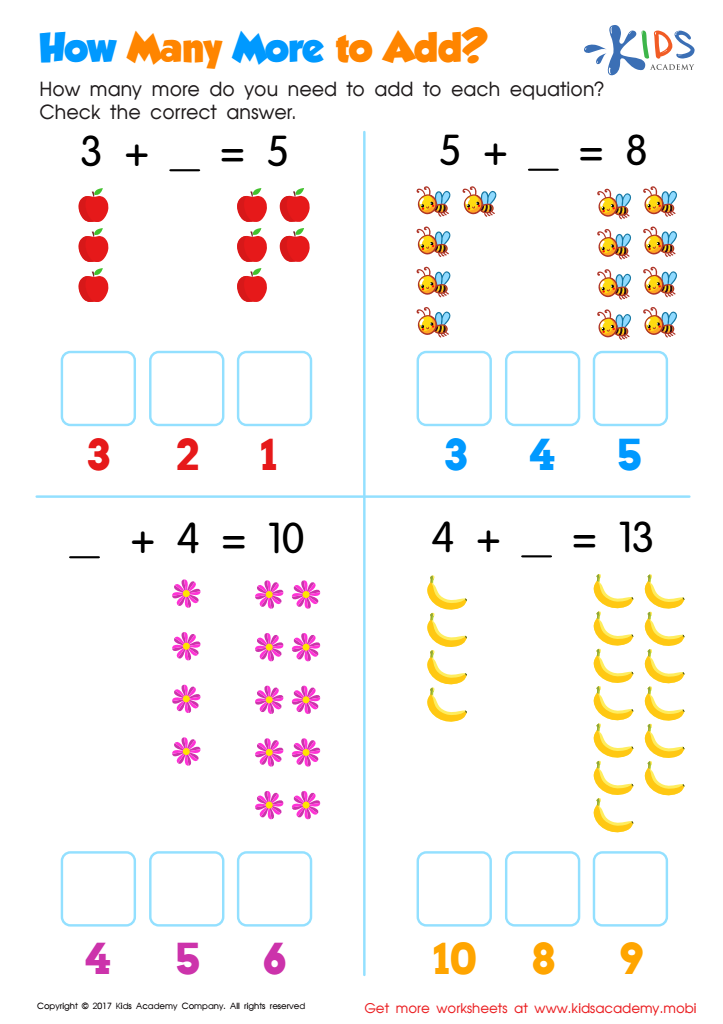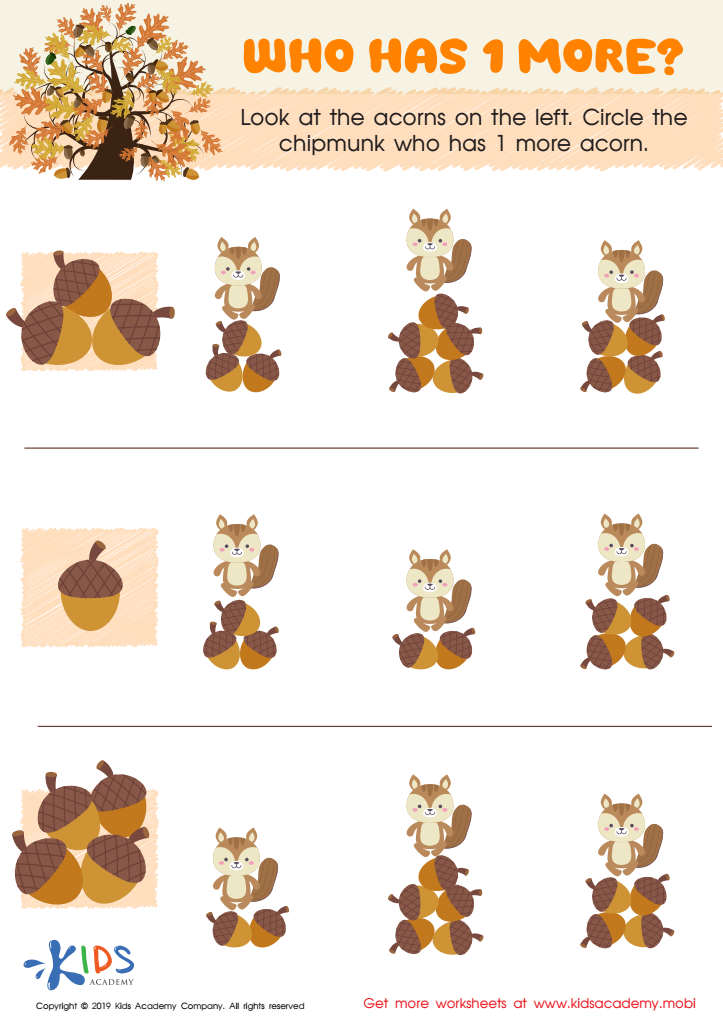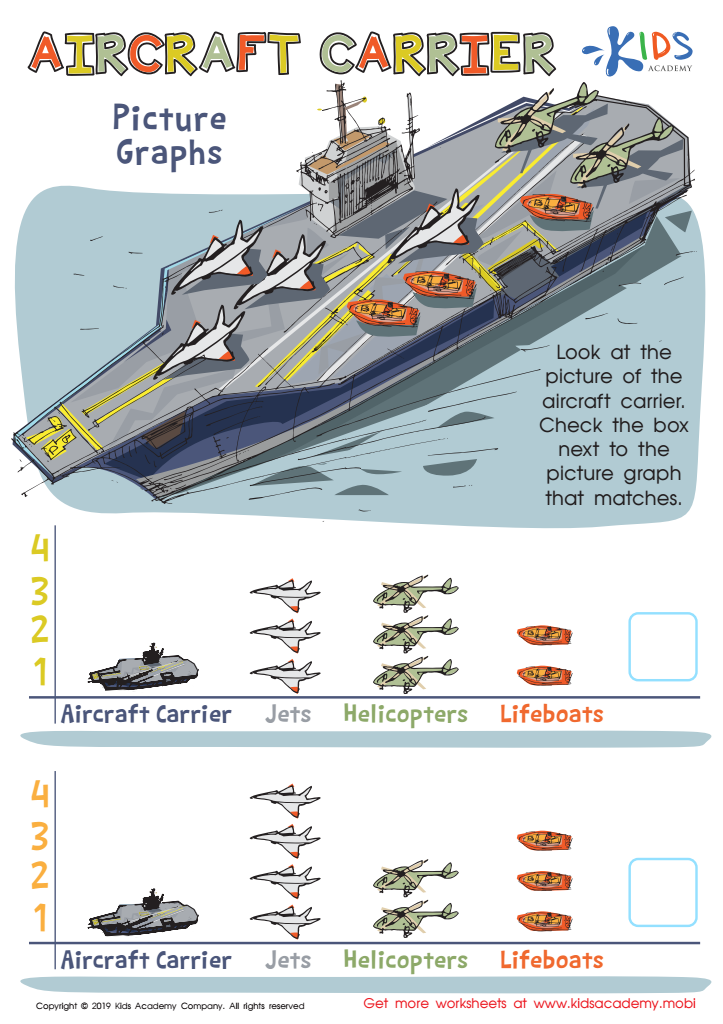Comparison Skills Easy Math Worksheets for Ages 3-8
3 filtered results
-
From - To
Boost your child's analytical skills with our "Comparison Skills Easy Math Worksheets for Ages 3-8". These engaging worksheets from Kids Academy foster foundational math skills by helping young learners differentiate sizes, quantities, lengths, and more. Perfectly designed for preschool through early elementary students, these exercises feature vibrant visuals and involve fun activities like matching, counting, and simple word problems. With our worksheets, children develop critical thinking and early math competencies in an enjoyable way. Support your child's education with resources expertly crafted to make learning comparisons exciting and comprehensible. Explore and enhance your child's math journey today!


How Many More to Add Worksheet


Who Has 1 More? Worksheet


Aircraft Carrier Picture Graphs Worksheet
Comparison skills in early math are critically important for children ages 3-8 as these foundational skills lay the groundwork for more advanced mathematical concepts. Engaging young minds in comparing sizes, quantities, lengths, and numbers hones several crucial cognitive abilities such as observation, logical thinking, and decision-making.
When children compare objects or numbers, they learn to discern differences and similarities, which fosters analytical thinking. For example, understanding that five apples are more than three apples not only teaches quantity comparison but also introduces basic number sense and counting. These skills are directly linked to future success in subjects like algebra and arithmetic.
Moreover, comparison activities can be seamlessly integrated into daily routines, making learning fun and accessible. Sorting toys by size, comparing the number of blocks in different piles, or identifying taller and shorter trees in the park are all simple, effective exercises.
For teachers and parents, cultivating these skills early supports overall academic readiness and confidence. Children who grasp the concept of comparison tend to perform better in math and are better equipped to undertake problem-solving tasks. By paying attention to the development of comparison skills, parents and educators can set the stage for a child’s long-term educational growth and critical thinking ability.

 Assign to My Students
Assign to My Students
















